**********
I feel that it's critical for every parent to be aware of autism symptoms. Looking back, Max's symptoms were present practically since birth. Of course, you can't diagnose a 9 month old with autism, but early intervention is key! The more aware we are, the more likely we are to notice a problem early on.
Sometimes it's hard to tell if certain symptoms are signs of autism or just quirky personality traits. For a long time, I assumed he was just quirky. Autism isn't just a single symptoms- it's a cluster of certain symptoms. You have to look at the big picture in order to truly understand autism, and how your child is affected.
Autism is a spectrum disorder, meaning some people are severly affected, and some are only mildly affected. I read somewhere (I can't remember where...) that one person said that everyone was really on the autism sprectrum. Most people are so midly affected that they are not considered "autistic." And that everyone has their quirks, but most people cope with them without much effort. I think this is a great way to look at autism, especially as a parent to a child with autism. Max just needs to be taught to cope with his symptoms. And that is definitely something we can do...
Here is some more technical information from the Autism Speaks website...
"Autism affects the way a child perceives the world and makes communication and social interaction difficult. The child may also have repetitive behaviors or intense interests. Symptoms, and their severity, are different for each of the affected areas - Communication, Social Interaction, and Repetitive Behaviors. A child may not have the same symptoms and may seem very different from another child with the same diagnosis. It is sometimes said, that if you know one person with autism; you know one person with autism.
The symptoms of autism typically last throughout a person's lifetime. A mildly affected person might seem merely quirky and lead a typical life. A severely affected person might be unable to speak or care for himself. Early intervention can make extraordinary differences in a child's development. How a child is functioning now may be very different from how he or she will function later on in life.
The following information – about the social symptoms, communication disorders and repetitive behaviors associated with autism – is taken from the National Institute of Mental Health Website.
Social Symptoms
From the start, typically developing infants are social beings. Early in life, they gaze at people, turn toward voices, grasp a finger, and even smile.
By contrast, most children with autism seem to have tremendous difficulty learning to engage in the give-and-take of everyday human interactions. Even in the first year of life, many do not interact and avoid eye contact in a normal way. They may seem indifferent to other people, and prefer being alone. They may resist attention or passively accept hugs and cuddling. Later, they may fail to seek comfort or respond to parents' displays of anger or affection in a typical way. Research has suggested that although children with autism are attached to their parents, their expression of this attachment is unusual and difficult to “read”. To parents, it may seem as if their child is not connected at all. Parents who looked forward to the joys of cuddling, teaching and playing with their child may feel crushed by this lack of the expected and typical attachment behavior.
Children with autism also are slower in learning to interpret what others are thinking and feeling. Subtle social cues such as a smile, a wave, or a grimace-may have little meaning to a child with autism. To a child who misses these cues, “Come here” may always mean the same thing, whether the speaker is smiling and extending her arms for a hug or frowning and planting her fists on her hips. Without the ability to interpret gestures and facial expressions, the social world may seem bewildering. To compound the problem, people with autism have difficulty seeing things from another person's perspective. Most five year olds understand that other people have different thoughts, feelings, and goals than they have. A child with autism may lack such understanding. This inability leaves them unable to predict or understand other people's actions.
Although not universal, it is common for people with autism to have difficulty regulating their emotions. This can take the form of “immature” behavior such as crying in class or verbal outbursts that seem inappropriate to those around them. Sometimes they may be disruptive and physically aggressive, making social relationships even more difficult. They have a tendency to “lose control”, particularly when they're in a strange or overwhelming environment, or when angry or frustrated. At times, they may break things, attack others or hurt themselves. In their frustration, some bang their heads, pull their hair or bite their arms.
Communication Difficulties
By age three, most children have passed predictable milestones on the path to learning language; one of the earliest is babbling. By the first birthday, a typical toddler says a word or two, turns and looks when he hears his name, points when he wants a toy, and when offered something distasteful, makes it clear that the answer is “no”.
Some people with autism remain mute throughout their lives; although the majority develops spoken language and all eventually learn to communicate in some way. Some infants who later show signs of autism “coo” and babble during the first few months of life, but they stop. Others may be delayed, developing language as late as age five to nine. Some children may learn to use communication systems such as pictures of sign language.
Children with autism who do speak often use language in unusual ways. They seem unable to combine words into meaningful sentences. Some speak only single words, while others repeat the same phrase over and over. They may repeat or “parrot” what they hear, a condition called echolalia. Although many children with autism go through a stage where they repeat what they hear, it normally passes by the time they are three.
Some children with autism who are only mildly affected may exhibit slight delays in language, or even seem to have precocious language and unusually large vocabularies, but have great difficulty in sustaining a conversation. The “give and take” of normal conversations may be hard, although they may often carry on a monologue on a favorite subject, giving others little opportunity to comment. Another common difficulty is the inability to understand body language, tone of voice, or “phrases of speech.” For example, someone with autism might interpret a sarcastic expression such as “Oh, that's just great” as meaning it really is great.
While it can be challenging for others to understand what children with autism are less able to say, their body language may also be difficult to understand. Facial expressions, movements, and gestures may not match what they are saying. Also their tone of voice may fail to reflect their feelings. They may use a high-pitched, sing-song, or flat, robot-like voice. Some children with relatively good language skills speak like little adults, failing to pick up on the “kid-speak” that is common in their peers. Without meaningful gestures or the language to ask for things, people with autism are less able to let others know what they need. As a result, they may simply scream or grab what they want. Until they are taught better ways to express their needs, children with autism do whatever they can to get through to others. As they grow up, they can become increasingly aware of their difficulties in understanding others and in being understood. As a result, they are at greater risk of becoming anxious or depressed.
Repetitive Behaviors
Although children with autism usually appear physically normal, odd repetitive motions may set them apart from other children. These behaviors might be extreme and highly apparent or more subtle. Some children and older individuals repeatedly flap their arms or walk on their toes. Some suddenly freeze in a position.
As children, individuals with autism might spend hours lining up their cars and trains in a certain way, rather than using them for pretend play. If someone moves one of the toys, the children may be tremendously upset. Many children with autism need, and demand, absolute consistency in their environment. A slight change in routines, such as mealtimes, dressing, taking a bath, and going to school at a certain time or by the same route, can be extremely stressful.
Repetitive behavior sometimes takes the form of a persistent, intense preoccupation. These strong interests may be unusual because of their content (e.g. Being interested in fans or toilets) or because of the intensity of the interest (e.g. knowing much more detailed information about Thomas the Tank Engine than peers). For example, a child with autism might be obsessed with learning all about vacuum cleaners, train schedules, or lighthouses. Often older children with autism have a great interest in numbers/letters, symbols, dates or science topics."
The symptoms of autism typically last throughout a person's lifetime. A mildly affected person might seem merely quirky and lead a typical life. A severely affected person might be unable to speak or care for himself. Early intervention can make extraordinary differences in a child's development. How a child is functioning now may be very different from how he or she will function later on in life.
The following information – about the social symptoms, communication disorders and repetitive behaviors associated with autism – is taken from the National Institute of Mental Health Website.
Social Symptoms
From the start, typically developing infants are social beings. Early in life, they gaze at people, turn toward voices, grasp a finger, and even smile.
By contrast, most children with autism seem to have tremendous difficulty learning to engage in the give-and-take of everyday human interactions. Even in the first year of life, many do not interact and avoid eye contact in a normal way. They may seem indifferent to other people, and prefer being alone. They may resist attention or passively accept hugs and cuddling. Later, they may fail to seek comfort or respond to parents' displays of anger or affection in a typical way. Research has suggested that although children with autism are attached to their parents, their expression of this attachment is unusual and difficult to “read”. To parents, it may seem as if their child is not connected at all. Parents who looked forward to the joys of cuddling, teaching and playing with their child may feel crushed by this lack of the expected and typical attachment behavior.
Children with autism also are slower in learning to interpret what others are thinking and feeling. Subtle social cues such as a smile, a wave, or a grimace-may have little meaning to a child with autism. To a child who misses these cues, “Come here” may always mean the same thing, whether the speaker is smiling and extending her arms for a hug or frowning and planting her fists on her hips. Without the ability to interpret gestures and facial expressions, the social world may seem bewildering. To compound the problem, people with autism have difficulty seeing things from another person's perspective. Most five year olds understand that other people have different thoughts, feelings, and goals than they have. A child with autism may lack such understanding. This inability leaves them unable to predict or understand other people's actions.
Although not universal, it is common for people with autism to have difficulty regulating their emotions. This can take the form of “immature” behavior such as crying in class or verbal outbursts that seem inappropriate to those around them. Sometimes they may be disruptive and physically aggressive, making social relationships even more difficult. They have a tendency to “lose control”, particularly when they're in a strange or overwhelming environment, or when angry or frustrated. At times, they may break things, attack others or hurt themselves. In their frustration, some bang their heads, pull their hair or bite their arms.
Communication Difficulties
By age three, most children have passed predictable milestones on the path to learning language; one of the earliest is babbling. By the first birthday, a typical toddler says a word or two, turns and looks when he hears his name, points when he wants a toy, and when offered something distasteful, makes it clear that the answer is “no”.
Some people with autism remain mute throughout their lives; although the majority develops spoken language and all eventually learn to communicate in some way. Some infants who later show signs of autism “coo” and babble during the first few months of life, but they stop. Others may be delayed, developing language as late as age five to nine. Some children may learn to use communication systems such as pictures of sign language.
Children with autism who do speak often use language in unusual ways. They seem unable to combine words into meaningful sentences. Some speak only single words, while others repeat the same phrase over and over. They may repeat or “parrot” what they hear, a condition called echolalia. Although many children with autism go through a stage where they repeat what they hear, it normally passes by the time they are three.
Some children with autism who are only mildly affected may exhibit slight delays in language, or even seem to have precocious language and unusually large vocabularies, but have great difficulty in sustaining a conversation. The “give and take” of normal conversations may be hard, although they may often carry on a monologue on a favorite subject, giving others little opportunity to comment. Another common difficulty is the inability to understand body language, tone of voice, or “phrases of speech.” For example, someone with autism might interpret a sarcastic expression such as “Oh, that's just great” as meaning it really is great.
While it can be challenging for others to understand what children with autism are less able to say, their body language may also be difficult to understand. Facial expressions, movements, and gestures may not match what they are saying. Also their tone of voice may fail to reflect their feelings. They may use a high-pitched, sing-song, or flat, robot-like voice. Some children with relatively good language skills speak like little adults, failing to pick up on the “kid-speak” that is common in their peers. Without meaningful gestures or the language to ask for things, people with autism are less able to let others know what they need. As a result, they may simply scream or grab what they want. Until they are taught better ways to express their needs, children with autism do whatever they can to get through to others. As they grow up, they can become increasingly aware of their difficulties in understanding others and in being understood. As a result, they are at greater risk of becoming anxious or depressed.
Repetitive Behaviors
Although children with autism usually appear physically normal, odd repetitive motions may set them apart from other children. These behaviors might be extreme and highly apparent or more subtle. Some children and older individuals repeatedly flap their arms or walk on their toes. Some suddenly freeze in a position.
As children, individuals with autism might spend hours lining up their cars and trains in a certain way, rather than using them for pretend play. If someone moves one of the toys, the children may be tremendously upset. Many children with autism need, and demand, absolute consistency in their environment. A slight change in routines, such as mealtimes, dressing, taking a bath, and going to school at a certain time or by the same route, can be extremely stressful.
Repetitive behavior sometimes takes the form of a persistent, intense preoccupation. These strong interests may be unusual because of their content (e.g. Being interested in fans or toilets) or because of the intensity of the interest (e.g. knowing much more detailed information about Thomas the Tank Engine than peers). For example, a child with autism might be obsessed with learning all about vacuum cleaners, train schedules, or lighthouses. Often older children with autism have a great interest in numbers/letters, symbols, dates or science topics."
When we were in the early stages of getting Max diagnosed with autism, I read through this and I was stunned. It's like they were describing my child. It was almost a relief to know that what I was seeing in Max was real. I wasn't imagining anything and we weren't just bad parents who couldn't control their child. There was something else going on. Autism is still such a mystery to me and I am so thankful for the teachers and therapists we have that help us figure things out and the best way to deal problems.
~~~~~~~~~~~~~~~~~~~~~~~~~~~~~~~~~~~~~~~~~~~~~~~~~~~~~~~~~~~
Remembering April 17th, 2010
No better way to spend a Saturday afternoon!!
This girl definitely loved her nuk and blankie!
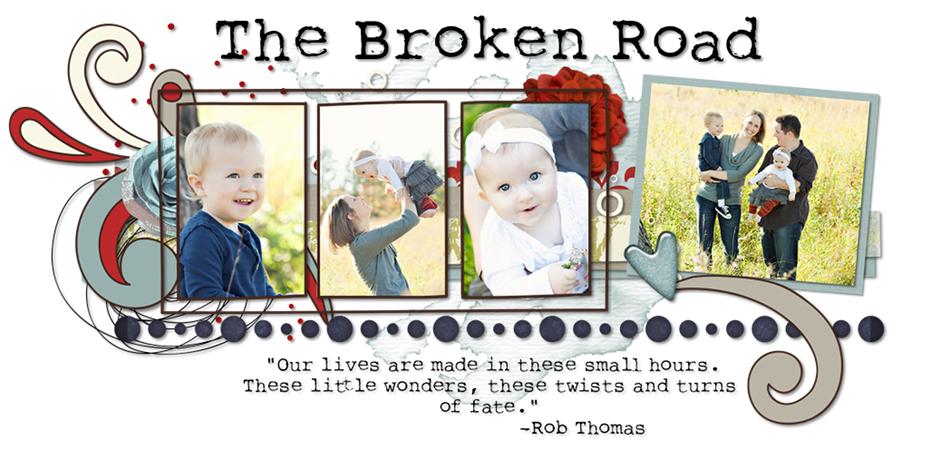





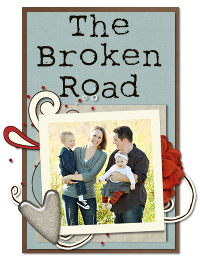









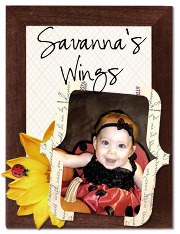
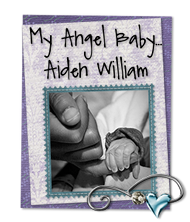
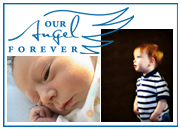
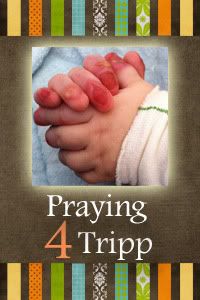


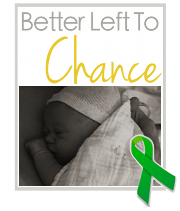




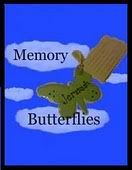


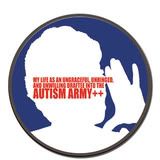





4 comments:
Thank you for sharing this information... early intervention is so important and can make such a difference - a friend's boy is now doing really well at school and is so happy... with all the support, understanding and love that he and his family have got over the years. Love to you all always xoxo
PS. I can't find your email address to send you a little letter re memory boxes for the hospital... please email me if you'd still like me to write something (from a stillbirth perspective).... sorry if I'm too late to join in. You do so much great work :)) xoxo
Thank you so much for sharing this information my friend! I have never had a true understanding of what autism is. My heart goes out to you as you are such a courageous woman. You grieve for sweet Ellie, and fight the fight for Max. You are the epitomy of a survivor. And I am so blessed to have 'met' you and so glad our girls and God allowed our paths to cross. xoxo
Thank you for sharing.
You are so right about early intervention. The info you gave here is great. Defiantly helps me to understand autism better.
Hugs-
Felicia
Post a Comment